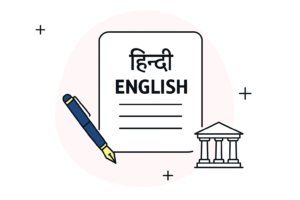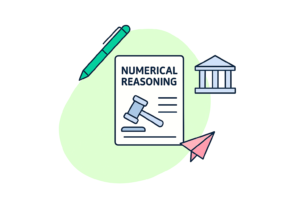Racking the judiciary exam requires more than just memorizing bare acts and revising case laws, it’s about being legally aware, socially conscious, and analytically sharp. Newspaper reading is an excellent way to stay informed, as it provides insights into the latest legal trends and contemporary issues, helping you stay ahead of the curve.
Moreover, regular newspaper reading significantly enhances your essay and answer writing skills by providing a wealth of current topics and diverse viewpoints. It’s a crucial tool for interview preparation, as it equips you with relevant subjects to discuss confidently.
What Makes Newspaper Reading a Game-Changer?

Editorials and opinions are a powerful tool for sharpening your critical thinking. By analyzing diverse viewpoints and arguments, you refine your ability to think critically and form well-rounded opinions. This not only strengthens your intellectual capabilities but also improves your language skills, all without the need for dull grammar drills.
In addition, staying updated with the latest legal and political developments is like finding a goldmine for your exams. These insights provide you with relevant, real-world context that can enhance your understanding of key topics.
🗞️ Which Newspapers Should Judiciary Aspirants Read?
- The Hindu
- The Indian Express
Why these two?
- In-depth analysis (not clickbait)
- Unbiased, balanced reporting
- Editorials written by top experts
- Crisp language = perfect for answer writing
📌 Skip tabloids and sensationalist media. Trust the classics.
⏰ How Much Time Should You Spend?
Dedicate 1 to 1.5 hours a day to newspaper reading, but ensure it’s smart reading. This isn’t just a casual morning scroll over tea; it’s strategic prep time. Treat the newspaper as a dynamic general knowledge textbook that enhances your understanding of current events and legal trends. Stay focused, pick the relevant news, and use it to boost your preparation efficiently.
📚 What to Read (and What to Skip!)
1. Front Page
Focus on national significance, Supreme Court/High Court cases, government policies, key appointments. Ignore celebrity gossip or political mudslinging.
2. Editorials & Op-eds
Goldmine for:
- Legal opinions
- Constitutional interpretation
- Socio-economic commentary
- Answer writing structure
3. National & International News
- Key laws passed
- Major treaties and summits
- Court rulings with constitutional impact
4. Business & Economy
- Union budget, RBI policies
- Mergers, acquisitions, appointments
- Legal aspects of economic reforms
5. Sports
- Big tournaments (Olympics, Cricket World Cup, Asian Games)
- Indian winners and record-breaking moments
How to Study a Newspaper Like a Topper

Step 1: Scan Smart (⏱️ 5-10 mins)
Quickly glance through headlines and highlight potential must-reads.
Step 2: Note Down What Matters
- Use keywords, not full sentences.
- Split your notebook: Polity | Economy | International | Sports | Misc.
- Keep it tidy & revision-ready.
Step 3: Google is Your Friend
Found a new term or law? Look it up. Context matters.
Step 4: Connect the Dots
Relate new updates to:
- Previous judgments
- Constitutional provisions
- Governance topics
✨ Note-Making Strategy (The Edzorb Way)
| Section | What to Note |
|---|---|
| Politics | Laws, bills, amendments, schemes, elections |
| Economy | Budget, macro-trends, economic reforms |
| International | Treaties, elections, summits, conflicts |
| Sports | Major tournaments, Indian achievers |
| Miscellaneous | Tech breakthroughs, festivals, observances |
How to Revise What You Read?
- Weekly Revision:
Go through your notes every 7 days. Mark what’s still relevant. - Monthly Review:
Summarize key events of the month in a 1-pager. - Practice Quizzes:
Test yourself using online platforms and apps.
Newspaper Reading = Competitive Edge in Judiciary Prep

You can memorize judgments, solve MCQs, and write essays, but unless you’re aware of the legal ecosystem, you’re missing the bigger picture.
Editorials + Legal News = The secret sauce of toppers.
So, read. Analyze. Revise. And rise.
Not Enough Time to Read Daily? Edzorb’s Got You Covered.
We know your schedule’s packed. That’s why at Edzorb Law, we do the heavy lifting for you.
- Daily Legal & Current Affairs Updates
- Audio-Visual Notes
- Summarized Editorials
- Important SC/HC Judgments
- Weekly & Monthly Revision Digests
👉 Level up your legal prep, without the overwhelm.
Ready to make newspaper reading your secret weapon?
Hit that bookmark, grab your pen, and let Edzorb Law help you build your judiciary dream, one headline at a time.

 Podcast
Podcast








 Features
Features






